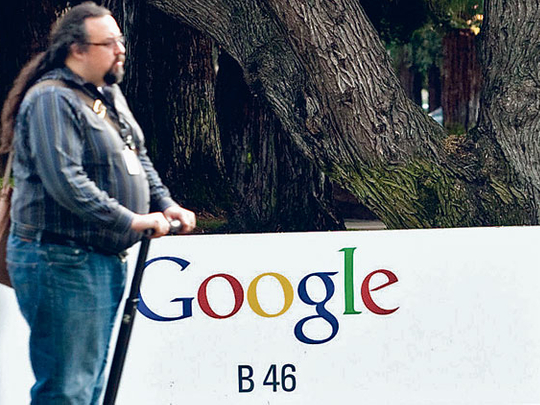
Distracted while thinking about how to begin this column, I clicked on an e-mail from a friend. She had sent me a YouTube video in which a tidy cylindrical shape on a shoulder strap unrolled to become a computer.
Almost every day, someone sends a YouTube clip or invites me to join them in Facebook or LinkedIn or Friendster.
None of this is remarkable, which is what makes an Italian judge's order Sunday "astonishing," as a Google spokesman put it.
Judge Oscar Magi in Milan found three Google executives guilty of invading the privacy of a disabled teen in Turin. They didn't know him, didn't photograph him, nor were they aware of it when someone else posted a video of him being bullied by a group of high-schoolers.
When Italian police informed Google it was hosting the video, employees took it down and helped authorities locate the teenager who posted it. She was prosecuted and sentenced to 10 months community service.
Nonetheless, Google's chief legal officer, David Drummond, its global privacy counsel, Peter Fleischer, and former chief financial officer George Reyes now stand convicted in Italy of invading privacy. Each got suspended sentences of six months in jail. They are the first internet executives to be held criminally liable for something some outsider posted.
In Italy, executives are punished when their company does wrong. As for the Google matter, if these men or this company can be convicted in this case, then to operate comfortably in Italy, internet hosts must monitor content submitted by users and weed out any ahead of time that may offend the law.
On a practical level, the volume of user-generated content is too great to scrutinise, even if national mores allowed that sort of censorship. So this means that internet executives all over the world should be very, very nervous today.
A death sentence?
If that were the law in the United States, it probably would have killed eBay, YouTube, Facebook and the rest of the lot before they got started, says Eric Goldman, who teaches law and technology at Santa Clara University in California.
"Rulings like this absolutely suppress entrepreneurial innovation," he says. Goldman suspects it's no coincidence that the United States is the global leader in creating new enterprises based on user-generated content.
"[The US] Congress has said it's safe to be an innovator," says Goldman.
Judge Magi has said it isn't.
His ruling, if it stands, will chill speech and squelch the spirit that makes the internet an ever-evolving creature — engaging, educating, entertaining and connecting us in ways we couldn't imagine a few minutes ago.












